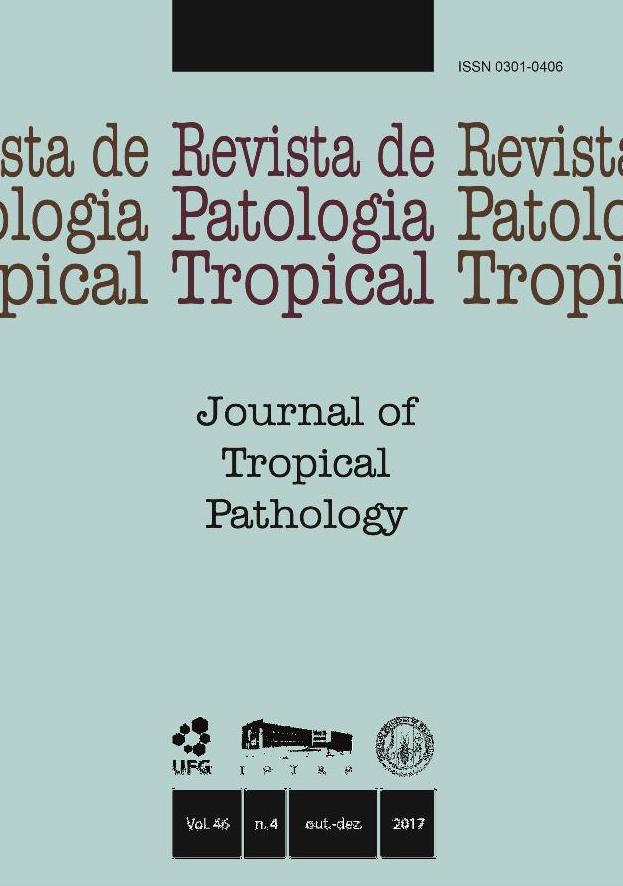RELIABILITY OF DIFFERENT METHODS OF DIAGNOSING INTESTINAL PARASITES IN HORSES
DOI:
https://doi.org/10.5216/rpt.v46i4.51012Palavras-chave:
Willis-Mollay, centrifugal flotation, Strongylida, Cestoda.Resumo
Parasitism by intestinal nematodes may cause serious injuries to equines affecting their performance, given that the parasites compete for food and cause irritation, internal bleeding and anaemia. The diagnostic methods currently available are not efficient in detecting all the
species of parasites simultaneously, hampering reliable diagnosis. Therefore, the purpose of this study was to evaluate four diagnostic methods for detecting equine intestinal parasites in the southern hinterland of Pernambuco, Brazil. Fecal samples (n = 87) were collected and examined through flotation based methods (Willis-Mollay, modified centrifugal flotation and EPG/OPG) and sedimentation (Hoffman). Of the total number of samples examined, 77.0% (67/87) were positive by modified centrifugal flotation; 44.8% (39/87) were positive by the
Willis-Mollay method; 34.5% (30/87) by the Hoffman method and 28.7% (25/87) by the EPG/ OPG method. The Kappa index indicated moderate concordance between the Willis-Mollay and modified centrifugal flotation techniques (K= 0.477); Willis-Mollay and EPG/OPG (K=0.466); EPG/OPG and Hoffman (K= 0.425). In conclusion, modified centrifugal flotation presented high sensitivity for detection of parasites of the Strongylida order and Parascaris spp. It may, therefore, be used in association with the Willis-Mollay technique as a safe and accurate method of diagnosis
Downloads
Downloads
Publicado
Como Citar
Edição
Seção
Licença
The manuscript submission must be accompanied by a letter signed by all authors stating their full name and email address, confirming that the manuscript or part of it has not been published or is under consideration for publication elsewhere, and agreeing to transfer copyright in all media and formats for Journal of Tropical Pathology.

